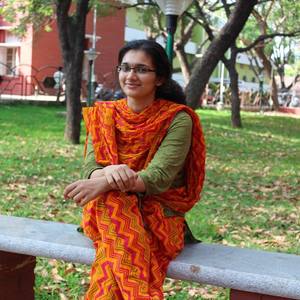A few days back, posters were hung predominantly in and around the AC Tech campus, on organic farming entrepreneurship. As simple as the phrase sounds, the hidden meaning behind it is, in fact, pretty deep. When I was asked to attend this lecture by Dr. G. Sivaraman, I wasn’t particularly excited, wondering what an engineer (yes, I took this chance to call myself one) could possibly gain out of it.
It all started the way a typical guest lecture starts, with the welcoming of the dignitaries and honoring them, which we all have seen plenty of, within these four years in campus. With an initially limited audience at the Raman Auditorium, the session began.
Organic Farming Entrepreneurship - these three words together are a perfect proportion of technicality and tradition - tradition being the agricultural profession, and technicality referring to utilizing one’s entrepreneurship skills to evolve traditional farming methods to suit modern needs. “Isn’t farming inherently organic? What is the need to talk about this right now?” were some of the questions I could decipher from the quizzical expressions of many. Statistical data, however, proves that modern farming comprises of a large number of chemicals, in the form of fertilizers, pesticides and other products assumed to keep crops healthy. But hey, let’s face it. We all know what’s happening to our fertile soil now. Within a few minutes of our guest holding the mike, the auditorium was completely flooded with students from all years and departments. This was when the first question emerged.
“So, if it’s about curbing the use of fertilizers, are we to blame chemical engineers for producing them in the first place?” Without any hesitation, Dr. Sivaraman responded with a confident no. He also provided a much deeper insight into this field, outlining its significance in the global scenario.
Two major concepts were revealed in reference to our habits and nature.
Concept 1: “The fancier it looks, the healthier we assume it to be”. This is the trending concept we all believe in. Commercials have engraved and fed us such ideas with every passing minute, making the products sale favorable for them. Be it salt-containing toothpaste or a perfectly-round chapati on the tava - they all grab our attention, but the chemicals that make them so fail to get noticed by us. This phenomenon is called “food politics”. Having consumed such chemicals for a long time, we all now have a greater chance of being the next one smiling on the obituary column of newspapers. “Experiencing fear progresses towards evolution”, he said, implying the necessity of the development of a large number of organic shops in the city that wouldn’t cost us a fortune but would still keep us fit and fine.
Concept 2: “Nature stabilizes itself”. Let’s say you are going to be hit hard on the head with a rod. What would be your immediate reaction? Either to grab the rod before it hits you, to move away from it – or, for the clumsiest of us, to shout. We call these actions reflexes. Likewise, our environment also possesses such reflex actions. For every immature act we indulge in, our surroundings reciprocate in a way that would help it re-attain stability. These take a pretty large amount of time, considering the surface area we are talking about. It is these reflex actions that usually cause a large proportion of recent “natural disasters”, which leading to further complications (Karma is pretty violent).
Apart from these two, the need to differentiate between the right and wrong kinds of food, methods of solving the current crisis and the serious deficit of entrepreneurship skills in organic farming were also widely spoken. Though the intentions and words very solid, the session itself was far from somber – it was fun-filled, with perfectly-timed jokes keeping the crowd glued to their seats.
As it ended, I found myself shuffling to the exit, thinking of the enormous scope that organic farming entrepreneurship could provide us with, if utilized in the right manner.
For those who listened to this much-needed lecture, only one thought sang in synchrony in their minds: “If not us, then who?”





